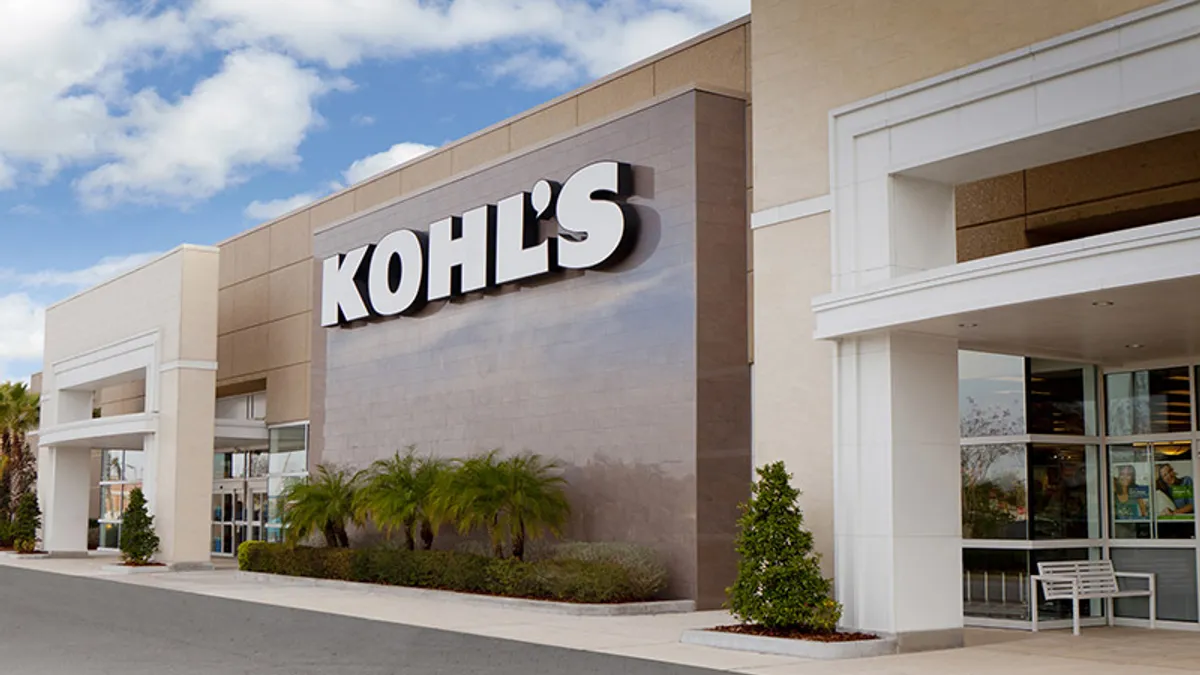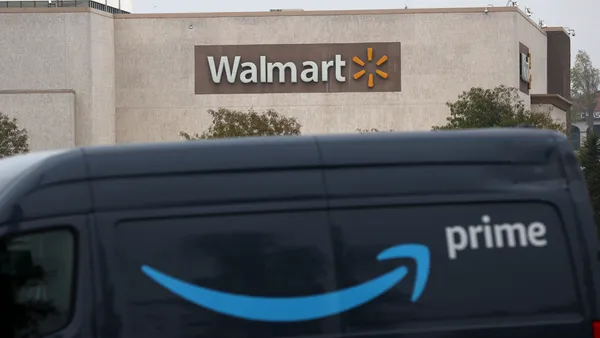Dive Brief:
- Kohl's lowered its outlook for gross margin rate by 20 to 30 basis points for the year due to the tariff hike from 10% to 25% on $200 billion worth of goods from China, executives told analysts on the retailer's first quarter earnings call. "That increase wasn't contemplated when we first put out our guidance," said CEO Michelle Gass.
- "China is not our largest source of merchandise, but it is a big one," CFO Bruce Besanko said on the call. He said the retailer sources just over 20% of its goods from China. The increased tariffs on tranche three mainly affect Kohl's imports of home goods and accessories.
- Kohl's is working closely with vendors in an effort to keep prices down and "protect our market share," Gass said.
Dive Insight:
"It's fair to say, it's still a very fluid situation right now," Gass said.
The CEO's words encapsulate the near-universal struggle for retailers importing products from China — the lack of certainty in the trade landscape.
The retailer's original guidance for 2019 did not take into account a tariff hike from 10% to 25% on list three. The increase, originally scheduled for Jan. 1, was delayed until the end of a 90-day negotiation period between the U.S. and China, and then further delayed, leading some stakeholders to believe the hike would never come.
Throughout trade talks, Trump administration officials described the discussions as constructive or productive, which gave many businesses a false sense of hope the tariffs would dissipate, and led retailers like Kohl's to issue guidance around what it perceived as the most likely scenario.
Kohl's guidance certainly did not consider tranche four, which would tax nearly every remaining import from China at a rate of up to 25%.
"Apparel and footwear at this point are not impacted," Besanko said. Gass described apparel as the retailer's "core offering," and sales in the category were strong in the first quarter.
So far, apparel and footwear have been left relatively unscathed in the trade war. On list four, however, more than $55 billion of the $300 billion worth of goods proposed for tariffs include textiles, apparel, footwear and leather. Kohl's executives on the call did not say whether they plan to include tranche four tariffs in their risk mitigation plans or guidance.
Should the tariffs take effect, costs would directly impact brands like Nike, Adidas and Under Armour, which Gass described as "our three key national brands" and important growth drivers for the retailer. The three brands were among more than 170 signatories to a letter to Donald Trump, requesting he remove footwear from the proposed list. The Footwear Distributors and Retailers of America, which published the letter, estimated $7 billion in additional annual costs for consumers if list four takes effect.
For retailers like Kohl's who use low price points to distinguish themselves from competitors, passing on costs from higher tariffs to consumers is simply not an option if they want to maintain market share. The other choice, then, is to decrease margins.














